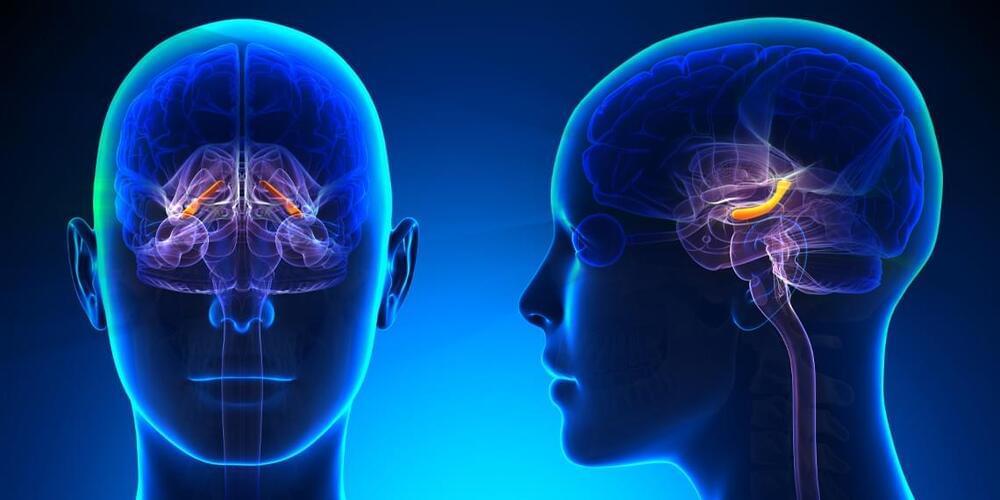Some animal neuropeptides have been around longer than nervous systems.



Summary: A new study using 3D-MINFLUX technology allowed researchers to image the active zone of synapses with the precision of a few nanometers.
Source: University of Gottingen.
Scientists at the Institute for Auditory Neuroscience, UMG, the Max Planck Institute for Multidisciplinary Sciences and the Abberior Instruments GmbH have applied high-resolution 3D-MINFLUX technology for precise 3D representation of the molecular organization in the active zone of rod photoreceptor cells.
Researchers at Rice University have shown how they can hack the brains of fruit flies to make them remote controlled. The flies performed a specific action within a second of a command being sent to certain neurons in their brain.
The team started by genetically engineering the flies so that they expressed a certain heat-sensitive ion channel in some of their neurons. When this channel sensed heat, it would activate the neuron – in this case, that neuron caused the fly to spread its wings, which is a gesture they often use during mating.
The heat trigger came in the form of iron oxide nanoparticles injected into the insects’ brains. When a magnetic field is switched on nearby, those particles heat up, causing the neurons to fire and the fly to adopt the spread-wing pose.

Scientists have demonstrated that a brain-penetrating candidate drug currently in development as a cancer therapy can promote regeneration of damaged nerves after spinal trauma.
The research used cell and animal models to show that when taken orally the candidate drug, known as AZD1390, can block the response to DNA
DNA, or deoxyribonucleic acid, is a molecule composed of two long strands of nucleotides that coil around each other to form a double helix. It is the hereditary material in humans and almost all other organisms that carries genetic instructions for development, functioning, growth, and reproduction. Nearly every cell in a person’s body has the same DNA. Most DNA is located in the cell nucleus (where it is called nuclear DNA), but a small amount of DNA can also be found in the mitochondria (where it is called mitochondrial DNA or mtDNA).

Can the sum of knowledge and experience we’ve accumulated over a lifetime live on after we die? The concept of “mind-uploading” is a modern version of an age-old human dream. Transhumanism hopes to not only enhance human capacities but even transcend human limitations such as bodily death.
The main character of Oscar Wilde’s famous novel The Picture of Dorian Gray wishes for eternal youth. And his wish is fulfilled: Dorian Gray remains young and exquisitely beautiful, whereas his portrait grows old, bearing the burden of aging, human shortcomings and imperfections. As we know, the story ended badly for Dorian.
In our time, scientific discoveries and new technologies promise to bring us closer to his dream. And no deal with the Devil is needed for doing so: once we understand how to manipulate the building blocks of life as well as the material foundations of our consciousness, emotions and character traits, so the story goes, we will be able to broaden human nature and overcome its inherent limitations such as aging, suffering and cognitive, emotional and moral shortcomings.



New research provides evidence that high intensity interval training improves metabolism in a brain structure responsible for memory formation and retention. The study, published in Psychophysiology, found increased metabolism in the left hippocampus following a 6-month physical activity intervention for adolescents.
“The primary focus of my research is the design, evaluation, and dissemination of school-based physical activity interventions,” said David Lubans, a professor at the University of Newcastle and the corresponding author of the study.
“My secondary area of interest is studying the effects and mechanisms of physical activity on young people’s mental health and cognition. I have found that providing evidence for the benefits of physical activity for academic outcomes, including test performance, cognitive function and on-task behavior in the classroom provides a strong impetus for schools to provide additional activity for young people.”
It was thought that spongy bone in woodpeckers’ heads cushioned their brains from hard knocks, but in fact their skulls are stiff like a hammer.